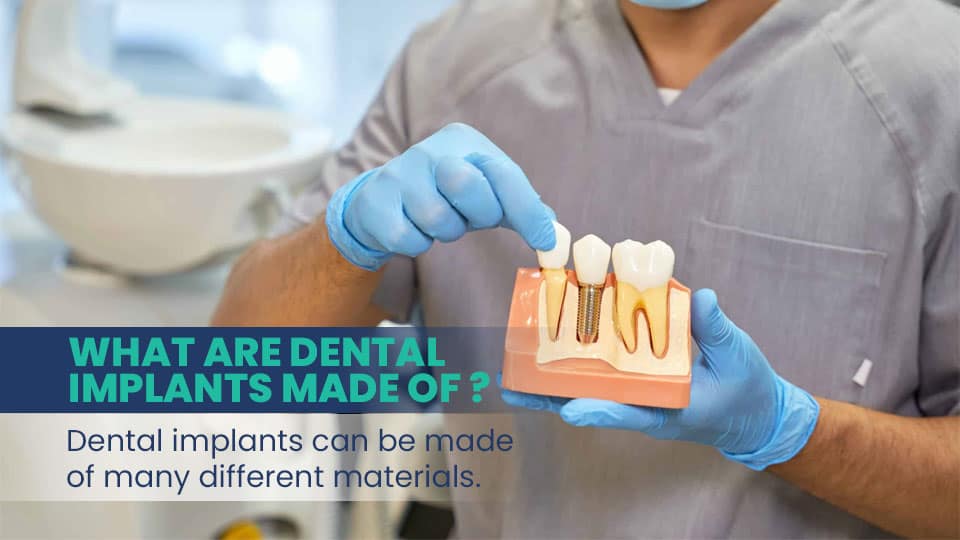What are Dental Implants Made Of?
Dental implants, which provide a dependable and aesthetically beautiful option for tooth replacement, have completely transformed the profession of dentistry. These implants function as artificial tooth roots, giving permanent or removable replacement teeth that closely resemble your original teeth a sturdy base. However, what precisely are dental implants composed of? Let’s examine the materials frequently used in dental implants and discover the factors that led to their selection for this crucial function.

